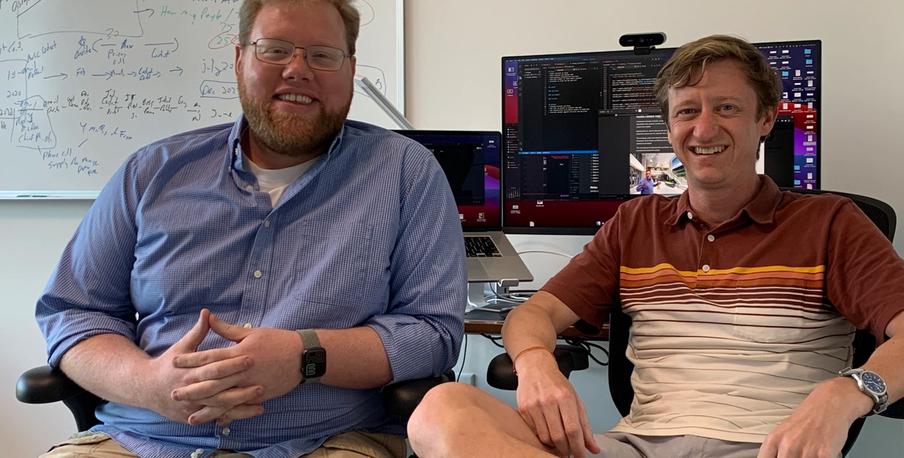A Powerful Partnership Yields Drug Cost-Savings Tool
Community News

Three years ago, the Medical University of South Carolina (MUSC) trimmed several million dollars from a multimillion-dollar drug budget by using a pharmacy-designed algorithm that searched the complex drug pricing universe to bring the best values to the surface.
The software engine that drove those savings has since been spun off by MUSC into a separate enterprise called QuicksortRx, and its pharmacy spending benefit has been expanded to other health systems and hospitals nationwide.
Now, QuicksortRx aims to extend its reach. The Charleston, S.C.--based pharmacy technology company recently formed a partnership with ASHP that will offer "next-generation pharmaceutical software and analysis" to additional health systems struggling to cope with the lack of drug pricing transparency.
"One of the things that was really challenging to us was knowing when a price changed. That has never been very transparent," said Paul Bush, PharmD, MBA, BCPS, ASHP's vice president of Global Resource Development and Consulting, who was the chief pharmacy officer at Duke University Health System for a decade before joining the association.
Dr. Bush said although the price changes "would be recorded on the specifc line item, the individual responsible for drug procurement in the pharmacy department could not easily see them. Days could go by when we'd be paying a higher price."
That lag time is the target of QuicksortRx's supply chain purchasing tool. "We find all of those places were switching products would save money," said Matt Hebbard, PharmD, QuicksortRx's vice president of sales and accounts. "And we use historical purchase data and current pricing as well to project the impact of switching. We take the largest of those opportunities and we surface them to a dashboard, where they can be seen as an alert: 'Here is something you can act on today to save your hospital signicant costs.'"
At AdventHealth, Richard Montgomery, BSPharm, MBA, the contracts and operations manager, told Pharmacy Technology Report that being able to monitor fluctuating drug prices in close to real time---especially in the 340B space where there is lots of movement---"is really important. There are a lot of dollars left on the table when you don't have access to that."
At the time of the interview, AdventHealth was close to signing on with QuicksortRx. "We have services and such that do contract utilization," Mr. Montgomery said, "but there is such a lag time. With Quicksort, you're in the moment and you can act on it and see results within the next day or two."
As one of the country's largest health systems, with dozens of hospitals across nine states, AdventHealth has an annual drug spend that Mr. Montgomery said was "north of $500 million. We are planning to start with a few select hospitals with a spend of around $60 million. If we can get 1% or 2% off of that, it would be nice win. More than that would be great. You know, under- promise and over-deliver."
The idea for QuicksortRx began in a chance encounter that Dr. Hebbard had when he was working as an informatics pharmacist at MUSC. "My wife works at MUSC as well," he told Pharmacy Technology Report. "One of her technicians was telling me about some purchase decisions he had made on oral dosage forms that was pretty low delta in price."
Dr. Hebbard looked into it and it struck him, he said, that "there was a lot of value to be gained by reviewing the products we purchased more frequently." But it was a dicult process. Over time, however, through a collaborative effort involving "the pharmacy department and purchasing folks, we began do this work with greater efficiency."
Dr. Hebbard said he ran into Jonathan Yantis, now QuicksortRx's CEO but then a network engineer at MUSC, who was looking for an innovative project to develop. The price search work being done in the pharmacy department seemed to fit the bill. Together, Dr. Hebbard and Mr. Yantis approached MUSC's chief innovation officer seeking support for their project.
They brought "proof-of-concept" numbers showing some "significant savings---a couple of hundred thousand dollars with a couple of days work in spreadsheets," Dr. Hebbard said. They received the resources to push the concept forward. "And then as this progressed from spreadsheets to automation," he added, "we realized that these opportunities arrive much more frequently than we thought. We ended up saving MUSC several millions the first year."
It also occurred to them that a technological tool that produced such results for MUSC had tremendous value as an intellectual property that could form the basis for a MUSC spin-off.
In a follow-up phone call, "We talked about how we could work together," Dr. Bush said. "One of the things we do at ASHP Consulting Services is work with knowledgeable consultants that help health systems improve their processes. We were so impressed with Quicksort's tool in terms of optimizing the drug spend by buying the right drugs at the right time that we knew this was a natural relationship that we should try to structure. So, we did."
Bruce Buckley / Pharmacy Technology Report